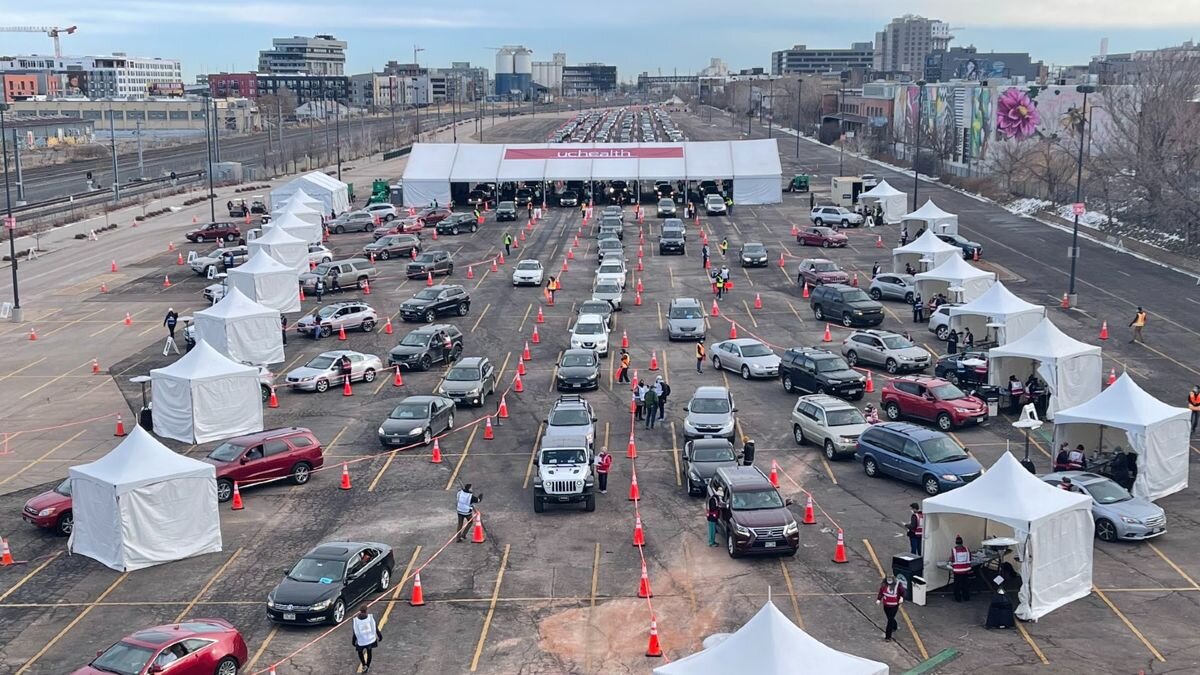Expert provides tips for managing 'needle fear' ahead of COVID-19 vaccinations

DENVER — When Governor Jared Polis received his first dose of the COVID-19 vaccine, he said, “I didn’t even feel it. That was amazing.” Other public figures had similar takeaways from their vaccination experiences. Vice President Kamala Harris said she “barely felt” the needle.
But for many people across the country, these messages of a painless shot aren’t enough to quell the anxiety surrounding needles or injections.
“Fear of needles is an incredibly real phenomenon. And right now, we’re seeing just how real that is,” said Jody Thomas.
Thomas is a clinical psychologist who specializes in pediatric medical illness and trauma. She is also the founder and executive director of Meg Foundation, a Colorado-based nonprofit that provides families with pain management strategies and resources.
Thomas told Rocky Mountain PBS that 25% of adults have a strong enough fear of needles that it can influence their health care decisions, including whether or not to get vaccinated. For children, that figure is about 60%.
An added hurdle for those wary of injections is that the current COVID-19 vaccines require two doses. According to the Meg Foundation, 15% of adults do not follow through on their second shots, mostly due to pain and anxiety.
With health officials working to reach “herd immunity” through vaccinations, Thomas wants to make sure that people with a fear of needles are still able to keep themselves and their loved ones safe against COVID-19 by getting the vaccine. She has come up with a few tips for people with “needle fear” that can help subdue their anxieties and fears.
The first thing Thomas suggests to pay attention to is location. Mass vaccination sites like the recent event with SCL Health at the National Western Complex may not be a good fit for people afraid of needles.
“For someone with needle fear, waiting around watching people get needles is going to be incredible anxiety-producing, and is one of the first things we’d say is really not a good thing to happen,” Thomas explained. She suggests that people make vaccine appointments so they know exactly what time the needle will be going into her arm.
However, mass vaccination events where people can stay in their car—like the drive-through event at Coors Field—can be beneficial because cars allow for a lot of distractions, whether it's the radio or other people in the car with you.
By sitting in our cars, Thomas said, “we can use the very powerful techniques of distraction and alternative focus. This is a phenomenal time to be on your phone.”

Another trick to make vaccinations and shots less stressful is a simple one: hold someone’s hand.
“When we have someone physically holding our hand, touching us, this calms our body and creates some beautiful changes that keep our panic under control and actually changes the way we process pain cycles,” Thomas said.
Numbing creams that you can find at a local drug store can also help people with needle fear.
“They do reduce the pain of the needle going in, but importantly, they make you feel like you’re doing something,” Thomas said.
She continued: “The more action we can take to actively cope with [needle fear], the better off we are.”
Thomas emphasized that these are not necessarily instant cures for a long-term phobia. Instead, she considers them “life-hacks” to make sure people can get themselves vaccinated to protect themselves and the people around them.
To people with needle fear, Thomas said, “You are most definitely not alone. This is a huge time when this fear is going to make itself more apparent.”